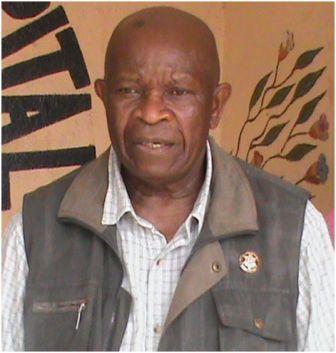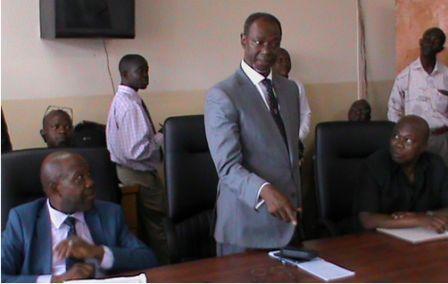Thank God for common sense!
It must have been a relief all round that that the health workers strike is over. A relief for the government that its bluff of “Get back or else!†was not tested; relief to the health workers that their insistence in getting all they asked for has not turned the public against them. Above all it must be a great relief to the suffering patients who had borne the brunt of it all. How true the saying that “When elephants fight it is the grass that suffers.â€Â The only losers in the whole sad affair are the hypocrites and praise singers whose only interest was themselves. We do not need a postmortem or a blame game over the “who’s and the why’sâ€. I believe it was an error of judgment to have exposed his Excellency to the indignity of negotiating with a mass of people when any meeting should have been with the strike leaders. Whoever thought that the presence of the head of state would immediately pacify or subdue people who had been out for a fortnight was not really clever. If I were one of his Excellency’s official advisers, heads would certainly have rolled. The Minister of Labour and Industrial Relations must think properly in the unlikely event of a “next time.â€
A Momentous Stride But!
It is god news; the government is taking a bold and a giant stride; the prospects look exciting. I refer to the forthcoming free medical treatment for pregnant women, lactating mothers and children under five years. It is a unique initiative not only for Sierra Leone, but I am tempted to say for Africa. It is a revolution in healthcare delivery. It is not just the introduction that is going to be expensive, but then the government, perhaps with the help of our development partners have all chipped in for the initial outlay. I am concerned about the recurrent budget. Would we be generating enough revenue to keep the programme going? My other concern is whether it would not suffer the fate of the so-called cost recovery for drugs at our hospitals. It is going to depend to a very large extent on the attitude of those who will be implementing it. For now I make bold to say that in spite of the vigorous propaganda that accompanies it. Our Attitudinal change campaign has made no mark, let alone impact on the majority of our population. Also the vast majority of those who need the proposed services most are in the isolated rural areas, in Bonthe, Kailahun, Kono, Koinadugu, Tonkolili, Moyamba, Bombali, yes even Bombali districts where many of the almost isolated villages are found. And it is in many of the villages in those districts that women would go into labour for days and by the time any form of relief comes, it is generally late. I am aware that even in our urban areas we encounter many such situations but those rural areas are in a class by themselves.
In 1946, Aneuran Bevan the Minister of Health in the first post World War 2Â Labour government of Clement Atlee introduced the British National Health Service. Everything about it, from general practice to consultant consultations, from surgery to maternal services, home visits and the supply of drugs and hospital sundries WERE ALL FREE. Then the abuse and the cost kept escalating; an initial charge of two shillings was made for a prescription; that was soon followed by payment on every item on the prescription and today, the British National Health Service is a far cry from the wonderful initiative of Nye Bevan. An old man just recalls from events in his life.
Stay with Sierra Express Media, for your trusted place in news!
© 2010, https:. All rights reserved.






